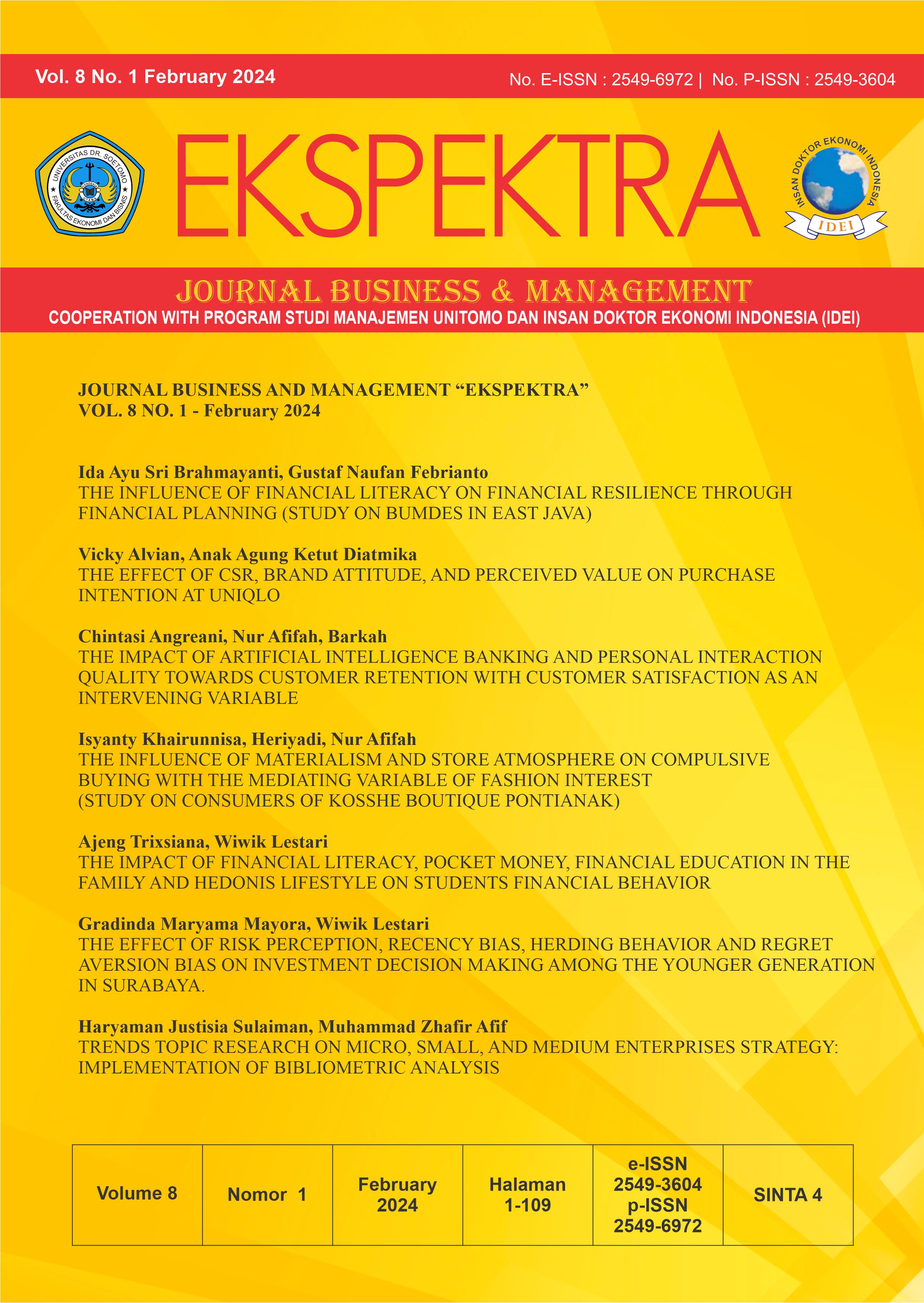The Effect of Risk Perception, Recency Bias, Herding Behavior and Regret Aversion Bias on Investment Decision Making Among The Younger Generation in Surabaya.
 Abstract views: 677
,
Abstract views: 677
,
 PDF Journal downloads: 465
PDF Journal downloads: 465
Abstract
The performance of the Indonesian capital market continues to increase every year. Data from KSEI shows that the number of investors continues to increase every year and the majority of investors are generational. This study aims to determine/influence risk perception, recency bias, herding/ behavior and regret aversion bias towards investment decision making/in generations in Surabaya. This research was conducted using a quantitative approach. The data collection method for testing the relationship between the independent variable and the dependent variable is by distributing questionnaires in the google form via social media WhatsApp, Instagram and Telegram. There were 111 respondents who filled out this research questionnaire, with the characteristics of respondents aged 17 years to 36 years, domiciled in Surabaya and having an account or investment account. The data was analyzed using PLS-SEM with Wrap-PLS software version 8.0. The results show that Risk perception has a significant effect on investment decision making, Recency bias has a negative effect on investment decision making, Herding behavior has no significant effect on investment decision making, and regret aversion bias does not have a negative effect on investment decision making.
Copyright (c) 2024 Ekspektra : Jurnal Bisnis dan Manajemen

This work is licensed under a Creative Commons Attribution-ShareAlike 4.0 International License.
Ekspektra : Jurnal Bisnis dan Manajemenis licensed under a Creative Commons Attribution-ShareAlike 4.0 International License.






















